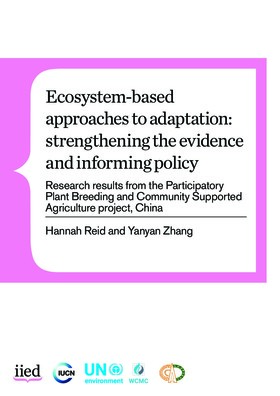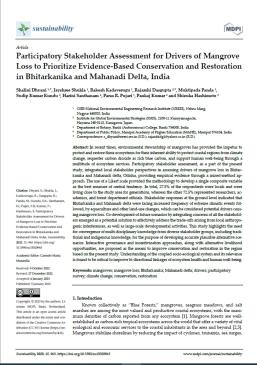A purpose-oriented, multi-stakeholder and multi-evidence-based biodiversity global review: rationale, modalities & gaps
Presentation This Policy Brief aims to propose specific modalities that can strengthen the review processes of the Convention on Biological Diversity (CBD). It advocates for a purpose-oriented, multi-evidence, and multi-stakeholder approach that not only tracks progress but also fosters constructive dialogue, identifies solutions, and enables transformative actions to meet the 2050 goals to achieve a stepping up of efforts if needed (‘ratcheting effect’) towards and beyond 2030. These recommendations are critical for ensuring that the GBF’s ambitious goals are effectively implemented, particularly through inclusive and transparent global reviews. Supplementary material: Building blocks of the biodiversity global review's multidimensional approach and their challenges Key Messages The multidimensional approach proposed by COP15 represents a significant step forward in closing the “implementation gap” by enhancing the coherence between international ambitions and national efforts. Review mechanisms allow the international community to track progress and adjust strategies before the 2030 deadline, thereby reinforcing accountability and enhancing global biodiversity governance. A purpose-oriented global review aims not only at tracking progress but also identifying solutions, barriers, and transformative pathways for the effective implementation of the GBF. It should enhance learning and enable course corrections to achieve a ‘ratcheting effect’ while staying within the non-punitive approach adopted in the GBF. Integrating diverse knowledge systems (scientific, technical, and stakeholder inputs) into the review process will provide a more comprehensive understanding of the progress, challenges, and opportunities in implementing the GBF. A review process that includes the perspectives of civil society, indigenous groups, private sector actors, and local communities is crucial for building an inclusive, participatory approach to biodiversity governance. Dedicated dialogues between stakeholders and Parties should be institutionalized within the review process. To ensure a robust global review, it is essential to anticipate potential gaps and challenges in the implementation of the GBF’s review mechanisms. Proactive efforts must be made to identify and fill these gaps, whether in data collection, national reporting, or stakeholder engagement. By promoting a culture of continuous improvement and transparency, Parties and stakeholders can strengthen the overall effectiveness of the review process and enhance global biodiversity governance.
智库成果

